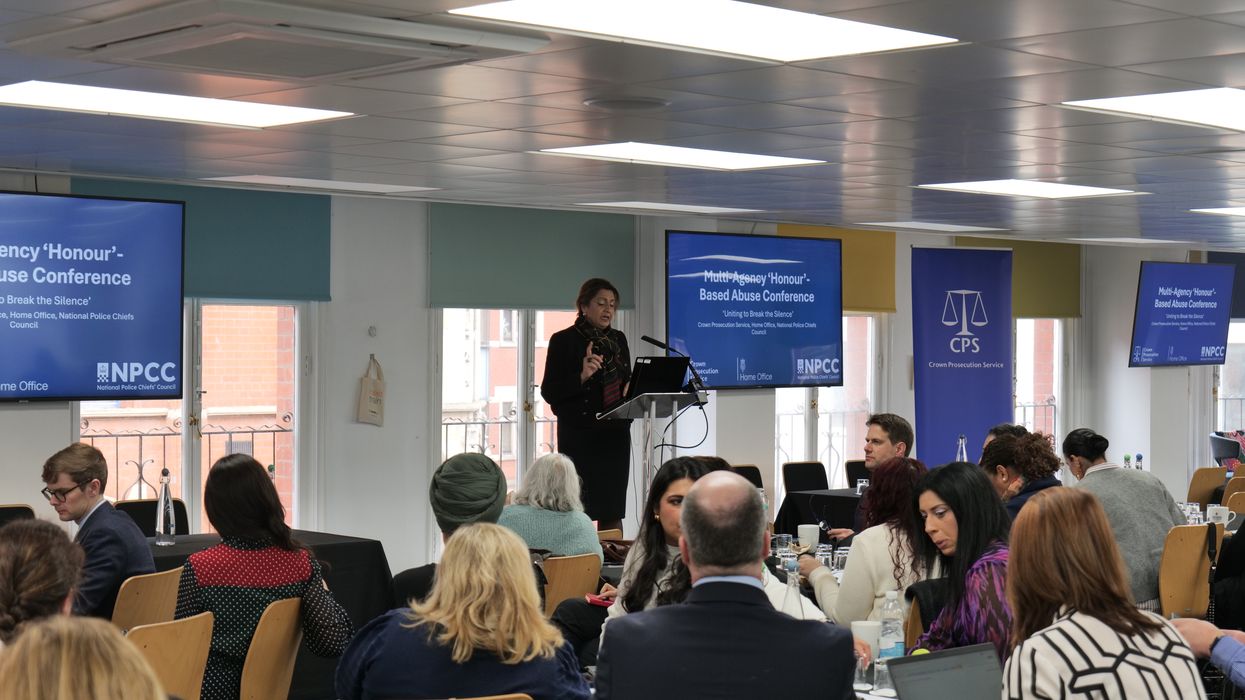Jaswant Narwal is relaxed but determined when we meet over Zoom, writes Barnie Choudhury.
But her message is clear, uncompromising and determined – those who kill or abuse in the name of honour are nothing but criminals who deserve the full force of the law.
And it is her upbringing which influenced her thinking.
“I couldn't understand why, when we were in a country like this, there were opportunities, but people were being held back, and girls were being held back,” Narwal mused.
“I do remember one of the cases that stuck with me, and I must have been about nine or 10 years old when the daughter of the local corner shop was sent off to Pakistan.
“She was a friend, you'd always say hello to her.
“I never saw her again, she'd be married off there, and she was, what about 13, 14 years old.
“So, I think there's certain things that stick with you as you're kind of growing up, and you don't realise the significance of them until you live through life and see it.”
- YouTubewww.youtube.com
Responsibilities
Narwal was born and brought up in Bradford. Her parents emigrated to Britain from Punjab in India, and they worked in the northern mills.
She recounted parents who created a life of familial love and encouraged her to get an education.
“In 1986 I went away to university, and there was like shock, horror,” Narwal remembered.
“I was living away, and it was, ‘Oh, my goodness me, what are you doing letting this girl go away from home and live away?’
“I had a responsibility to my parents, who took the chance on me.
“I didn't do anything wrong, and I upheld that responsibility.
“So, I think growing up, I could see that education was a way out of not just Bradford – not that I was running to get away from it – but to kind of progress and move forward.”
Narwal wanted to be a police officer, but after university she studied law.
“When I joined the bar, people used to go into what was called ghetto chambers.
“You probably remember that term, so to get pupillage to qualify, you went into these chambers where they're all black or Asian, because nobody else would take you on.
“But I was sponsored by the Crown Prosecution Service, and boy, have they got their money's worth out of me over the last 36 years,” she chuckled.
- YouTubewww.youtube.com
Role model
Narwal has prosecuted some high profile cases.
She led the team which prosecuted the former Met officer, David Carrick, who pleaded guilty to 49 offences including rape, coercive and controlling behaviour, sexual assault and false imprisonment.
London North’s chief prosecutor is a role model to other women, a responsibility she takes seriously.
As our time ends, Narwal, as ever, had a clear message to young women.
“I have not got to where I am without challenging, because if we don't challenge and we don't push the boundaries, we don't question, we'll never break into some of these areas.
“I still need people behind me coming in, so the pipeline is really important when people like me go into these jobs,
“We shouldn't pull up the pull up the ladder, we need to embrace those.
“I have set up networks, I have set up mentoring, and I will do many talks to help young girls, especially from a south Asian background, come up and rise and actually meet their ambitions.
“There are plenty of people out there, network, network, network and make connections.
“That's one thing I didn't have, and if I look back, I wish that I'd done more of it.
“So please, all of you out there, who have got dreams and ambitions, go on network.”
- YouTubewww.youtube.com




